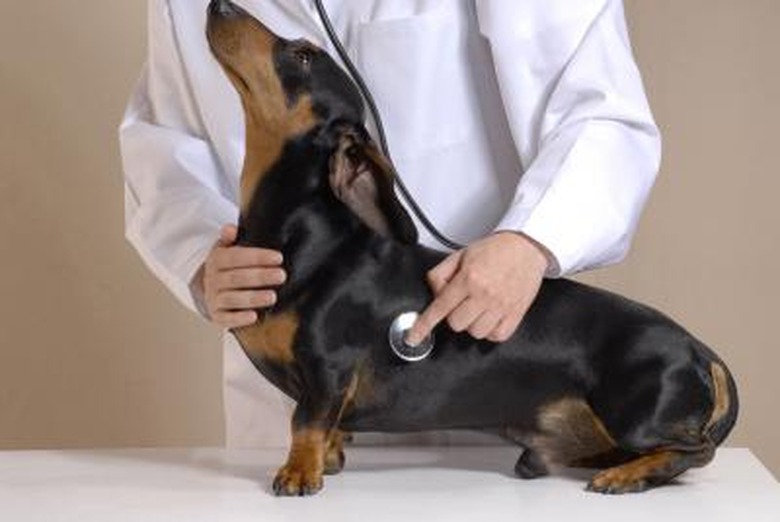Macrolone Medication For Dogs
Macrolone is a medication that is approved for use in dogs and cats. A veterinarian may prescribe it for dogs for a variety of conditions. Macrolone does have a risk of some side effects, but most dogs generally tolerate it well.
Identification
Identification
Macrolone is a corticosteroid medication that contains prednisolone. It comes in tablet form (20 mg) and is dosed at 1 tablet for every 8 to 40 kg of body weight. This medication has anti-inflammatory properties and may be used to treat arthritic conditions.
Benefits
Benefits
Macrolone can treat rheumatic, inflammatory and arthritic conditions. A vet may also prescribe it to treat allergic dermatitis, dirofilarial pneumonitis, kennel cough, poor appetite, lymphocytic plasmacytic enteritis, poisoning and granulomatous meningoencephalomyelitis.
Effects
Effects
Macrolone does have some side effects. These side effects may include gastric disturbances, poor coat, diarrhea, vomiting, weight gain, pancreatitis, lipidemia, diabetes, elevated liver enzymes, lethargy or hyperactivity. The use of corticosteroids in dogs may also increase the risk of stomach ulcers, which can bleed and become a serious medical condition.
Contraindications
Contraindications
Macrolone shouldn't be used in dogs with some pre-existing medical conditions, including corneal ulcers, diabetes, liver disease or kidney disease. Corticosteroids can reduce the body's ability to fight off infectious diseases, as well as slow healing of wounds. If Macrolone is used when an infection is present, it is important for the veterinarian to prescribe the appropriate antibacterial treatment along with Macrolone.
Considerations
Considerations
If your dog is taking Macrolone and experiences adverse side effects or the condition appears to worsen, contact the prescribing veterinarian for further instructions.
Always check with your veterinarian before changing your pet's diet, medication, or physical activity routines. This information is not a substitute for a vet's opinion.





